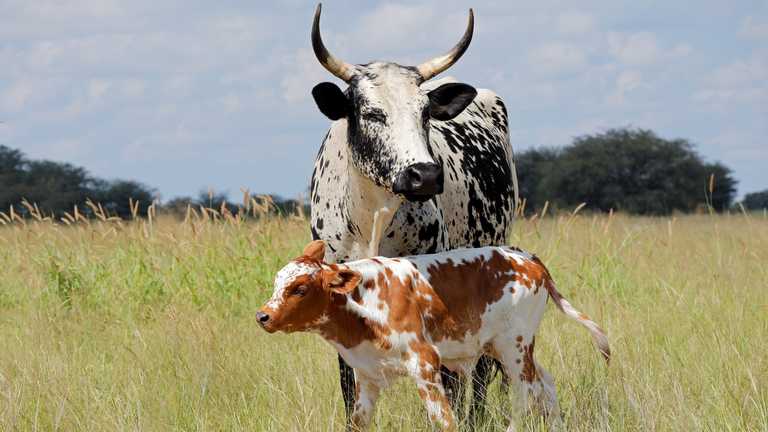

Loading search...
Loading search...
Loading site search...
Loading site search...
Loading site search...
Loading...
Loading site search...
Loading site search...
Posted 31 March

Plans to make Africa’s grasslands more resistant to the effects of climate change need research backing, a new paper has suggested.
The collaborative paper – published in - was put together by an international team of academics including ÁÕÀÅÊÓƵ Deputy Vice-Chancellor Professor Michael Lee among its authors. It examined the potential benefits of using multispecies swards on the continent’s grassland.
These grasslands make up almost half of all land use in Africa, with around seven in 10 people in rural Africa depending on the livestock they support for their livelihoods.
Drawing on data from the Global Farm Platform – an international network of farms and research institutes including ÁÕÀÅÊÓƵ Adams – the paper suggests that mixes of grasses, legumes, and herbs could help ensure the sustainability of African grasslands.
The researchers note: “Multispecies swards can reduce the impact of extreme weather events like droughts and floods and improve tolerance to stresses linked to climate change.
“For instance, deep-rooted species access deeper water during droughts, while shallow-rooted species benefit from rainfall, supporting productivity.
“Multispecies swards promote soil health, improve water retention, reduce soil erosion, and carbon and nitrogen footprints. Using multispecies swards in intensively managed grassland systems could boost biodiversity, which is essential for ecosystem stability.
“Biodiversity ensures ecosystem stability by allowing other species to fill ecological niches if one is affected by pests or diseases, a vital function amid climate change, which can alter pest and disease patterns.”
Other benefits they cite include enhanced pollinator and earthworm populations, and the impact of legumes in fixing nitrogen in the soul – reducing the need for synthetic fertilisers.
However, they note further work needs to be done to develop Africa-specific knowledge of the kind of forage mixtures which would be appropriate – as much of the current body of evidence which is available has drawn on research in temperate regions, rather than in African agro-climatic conditions.
To tackle this lack of evidence, they propose the formation of research consortia for Africa which build on work of initiatives like the – and suggest seven areas where further research should be carried out to develop the knowledge needed.
They add: “Multispecies swards represent a promising climate-smart strategy for resilient grassland systems which could be vital to achieving more sustainable and resilient African grassland and ruminant production systems.
“By leveraging the complementary and/or facilitatory interactions between different plant species, these systems can potentially withstand the challenges posed by climate change while providing nutritious food for humans, supporting local livelihoods, and enhancing biodiversity and associated ecosystem service provision.
“However, successful implementation depends on closing knowledge gaps in areas such as species selection, adaptability, fertilization practices, defoliation intensity and frequency, and understanding their economic value in different agroclimatic regions.
“With the right support and investment, multispecies grasslands could be crucial for sustainable land management in Africa and underpin local and global climate resilience.”










We use cookies to ensure that we give you the best experience on our website. If you continue without changing your settings, we'll assume that you are happy to receive all cookies on the website. However, you can change your cookie settings at any time.